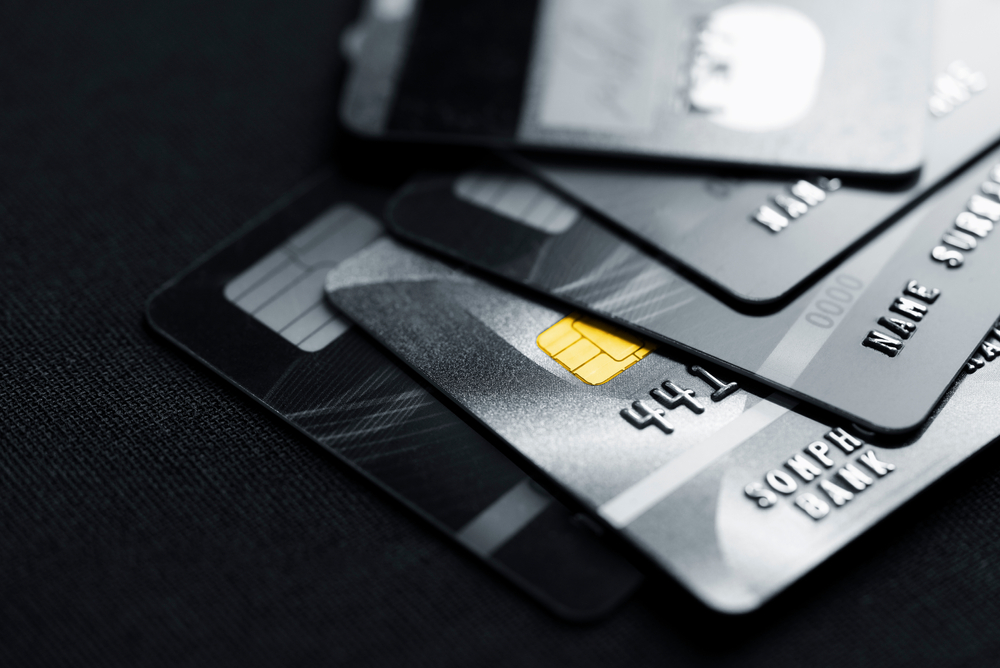The key to successfully making and preserving a reliable credit score goes beyond regularly reviewing your credit statements. You also need to possess the right proportion of consumer credit accounts, which includes revolving accounts such as credit cards.

However, the number of credit cards to hold should be carefully considered; this is only sometimes mentioned in conventional credit card advice. Add to that the notion that each financial status is different, and finding the answer may take a little more digging than expected.
Luckily, some basic principles will get you off on the right foot. Today we’re tackling the strategy question on “Credit Tips Day.” If you wonder “What number of credit cards to own?”, the following is the information you must learn.
How Many Cards Should I Possess?
As a general rule, to improve your credit rating, there is no definite number of cards you should have[1]. For some people, one card is enough. For others, it’s better to have up to three or four, especially if they offer perks such as trip discounts, a free credit check or cash rebate.
“The appropriate number depends on your ability to afford it reasonably,” said Brad Racino, risk analyst at Capital One. “Make sure you can meet the full payment of your bills, even if all your cards are maxed out”
If you have trouble handling your monthly bills on two credit cards, choosing only one is best. If you can manage more, 2-3 cards could keep you from being overwhelmed by debt.
Is There an Advantage to Having More Than One Credit Card?
Possessing several cards is not automatically a brilliant or unwise idea. What matters is how much you can realistically afford. Furthermore, it would help if you considered the implications for your creditworthiness.
Generally speaking, lenders look for borrowers who responsibly use various credit items. It typically implies a record of managing your credit well, whether revolving or non-revolving. To illustrate, if you demonstrate a specific habit of paying your bills and cards regularly and on time, you are a prime candidate[2]. In addition, each credit card offers its advantages. If you own multiple cards, you’ll have access to various programs, allowing you to satisfy many more financial needs.
“Holding more than one card is not intelligent if you have difficulty paying your debts,” said Racino.
Indeed, several accounts increase the financial burden. These management difficulties may expose you to late payments or overspending since you will use various cards to max out your debts.
What Impact Do Several Credit Cards Have on Your Rating?
Possession of more than one credit card affects your score in many ways. It plays a role in your total creditworthiness as well.
First, having two or three cards provides you with greater accessibility to credit, and this can strengthen your rating by raising your allowable credit limit[3]. However, sometimes this backfires. That’s because lenders look at your current borrowing capacity when determining whether to give you additional credit. Although you may not use all of your credit lines, you may do so, and they may assess the impact it would have on your capability to pay them back if you used all the rest.
Having numerous cards also affects your current credit utilization[4]. This ratio shows the total value of your existing credit lines relative to the balances on those lines. It can be about 30% of one’s FICO score, considering that low utilization rates result in a more favorable score and high utilization rates lower your score[5]. If you borrow responsibly, a new card could lower your utilization rate, thereby increasing your score; however, if you use the new card to its fullest, your utilization level increases and may lower your score.
“A hard check is usually performed on the applicant’s credit report when applying for a new card,” said Will Trevor, customer service agent at TD Bank. “Although a single complex review or two will usually not affect your rating, a higher number can lower it.”
Also, when you open a new credit card, you’ll reduce the average length of your credit accounts[6]. Lenders favor borrowers with good creditor relationships. Generally, it means that they are at least compliant with the requirements of the cards. If your average falls, lenders will only be willing to extend additional credit if you can prove to them that you how to use your latest additions responsibly.
Effect of Consumer Behavior and Use of Credit Cards
Before deciding if you should add a new card, you must consider your spending and credit card usage behaviors. Even though getting a new credit card can positively affect your score at first, especially if you had high usage without a new one, it could be problematic if you have a high balance on your new card[7].
“Sometimes credit cards become tempting,” said Trevor. “If you’ve had trouble keeping your balance low and acceptable, it’s wise to refrain from getting new cards. That way, you’ll avoid an eventual source of overspending until you establish good habits.”
In addition, payments get more cumbersome to manage if you have balances on multiple credit cards. Besides generating new deadlines, you may have numerous outstanding balances with significant monthly payments. As a result, forgetting a deadline becomes a possibility – an additional element that can hurt your score. Furthermore, costs may no longer be affordable, leaving you vulnerable to the risk of not meeting your budget strategy or skipping payments because you need more funds.
Is it Possible to Have Too Much Cards?
In theory, yes. Again, no number has been set. In fact, “possess too many cards” refers to opening so many cards that you won’t be able to handle them responsibly or access other needed credit because lenders consider your high credit limits too risky.
If you’re worried that you won’t be able to deal with a new card, or if you’re struggling to pay off debts you’re already incurring, don’t open another one. In the same vein, avoid adding cards if your overall credit lines are likely too high.
Finally, keeping 2-3 cards at most is generally wise, which is still manageable for most borrowers. However, if you are confident with only one card, that’s fine too. Sound and proper management is, after all, the key piece of the puzzle.








